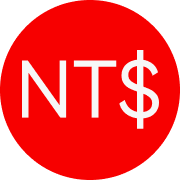



JPY information
About the Japanese Yen (JPY)
What Is the Japanese Yen (JPY)?
The Japanese Yen, abbreviated as JPY, is the national currency of Japan. The symbol for the Japanese Yen is "¥", which is used to denote the currency in international financial transactions. The yen's introduction in 1871 was a significant part of Japan's modernization policy under the Meiji government, aligning with the European Decimal Monetary System. The Japanese Yen is the sole legal tender in Japan, and it is used for all transactions within the country.
The Japanese Yen is issued by the Bank of Japan (BOJ), which is the central bank of Japan. Established in 1882, the Bank of Japan is responsible for issuing and managing the country's currency and monetary policy. It plays a crucial role in the Japanese financial system, including controlling the money supply, setting interest rates, and ensuring the stability of the Japanese financial system.
What Is the History of JPY?
The yen replaced a diverse range of currencies issued by feudal fiefs, known as Hansatsu, following the New Currency Act of 1871. This change was part of Japan's transition from a collection of feudal fiefs to a unified, modern state. The Bank of Japan, established in 1882, eventually took over the issuance of currency, marking a significant step in centralizing and stabilizing Japan's monetary system.
Notes and Coins of JPY
The Japanese Yen includes coins like the lightweight 1 Yen, the lucky 5 Yen with a hole, the 10 Yen featuring Byodo-in Temple, the 50 Yen, the commonly used 100 Yen with cherry blossoms, and the highest value 500 Yen coin. Banknotes comprise the 1,000 Yen with Hideyo Noguchi, the less common 2,000 Yen depicting a scene from "The Tale of Genji," the 5,000 Yen featuring writer Ichiyo Higuchi, and the highest 10,000 Yen note with Yukichi Fukuzawa. These currencies reflect Japan's culture, history, and natural beauty.
Current Status and Global Standing
As of 2024, the Japanese yen was recognized as one of the top-performing currencies, with projections indicating its potential to surpass the US dollar in terms of strength. JPY also holds the distinction of being the third most traded currency in the forex market, following the US dollar and the euro. It also serves as a commonly used reserve currency alongside the USD, euro, and pound sterling. Factors contributing to this include liquidity from Japan's central bank, government spending, and global demand for Japanese exports. The yen's appreciation is often attributed to the strengthening of the US dollar and the growth of the Japanese economy.
Bank of Japan's Monetary Policy
The Bank of Japan maintains a near-zero interest rate policy, historically aligning with Japan's strict anti-inflation stance. Post the 2008 Global Financial Crisis, Japan faced a period of deflation. In response, in 2013, the Bank of Japan announced an expansion of its Asset Acquisition Policy by $1.4 trillion over two years, aiming to shift from deflation to a target inflation rate of 2%. This policy intended to double the money supply, reflecting a significant shift in Japan's monetary approach.
What Is Digital Yen?
The Digital Yen, or DCJPY, is a Japanese yen-backed digital currency set to launch in July 2024. Developed by DeCurret Holdings, the DCJPY ecosystem will feature two distinct blockchain networks: the "Business Zone'' for issuing user assets, including digital assets and non-fungible tokens (NFTs), and the "Financial Zone" for banks to mint deposits as digital assets. This initiative aligns with the vision of Hiromi Yamaoka, chairperson of the Digital Currency Forum, who believes that digital currencies will play a central role in the future economic development and welfare by enhancing the functions of information and data processing. The DCJPY is designed to coexist with a central bank digital currency (CBDC), marking a significant step in Japan's embrace of digital financial technology.
BIS to JPY conversion rate trend
BIS to JPY market statistics
More info about Bismuth on Bitget
Current BIS to JPY exchange rate
Bismuth to Japanese Yen is falling this week.BIS to JPY Conversion tables
The exchange rate of Bismuth is increasing.BIS to JPY
JPY to BIS
BIS to JPY Today vs. 24 hours ago
| Amount | 09:16 am today | 24 hours ago | 24h change |
|---|---|---|---|
| 0.5 BIS | ¥0.7623 | ¥0.7432 | +2.58% |
| 1 BIS | ¥1.52 | ¥1.49 | +2.58% |
| 5 BIS | ¥7.62 | ¥7.43 | +2.58% |
| 10 BIS | ¥15.25 | ¥14.86 | +2.58% |
| 50 BIS | ¥76.23 | ¥74.32 | +2.58% |
| 100 BIS | ¥152.47 | ¥148.63 | +2.58% |
| 500 BIS | ¥762.33 | ¥743.15 | +2.58% |
| 1000 BIS | ¥1,524.66 | ¥1,486.3 | +2.58% |
BIS to JPY Today vs. 1 month ago
| Amount | 09:16 am today | 1 month ago | 1M change |
|---|---|---|---|
| 0.5 BIS | ¥0.7623 | ¥0.6631 | +14.96% |
| 1 BIS | ¥1.52 | ¥1.33 | +14.96% |
| 5 BIS | ¥7.62 | ¥6.63 | +14.96% |
| 10 BIS | ¥15.25 | ¥13.26 | +14.96% |
| 50 BIS | ¥76.23 | ¥66.31 | +14.96% |
| 100 BIS | ¥152.47 | ¥132.62 | +14.96% |
| 500 BIS | ¥762.33 | ¥663.12 | +14.96% |
| 1000 BIS | ¥1,524.66 | ¥1,326.25 | +14.96% |
BIS to JPY Today vs. 1 year ago
| Amount | 09:16 am today | 1 year ago | 1Y change |
|---|---|---|---|
| 0.5 BIS | ¥0.7623 | ¥1.67 | -54.40% |
| 1 BIS | ¥1.52 | ¥3.34 | -54.40% |
| 5 BIS | ¥7.62 | ¥16.72 | -54.40% |
| 10 BIS | ¥15.25 | ¥33.43 | -54.40% |
| 50 BIS | ¥76.23 | ¥167.17 | -54.40% |
| 100 BIS | ¥152.47 | ¥334.34 | -54.40% |
| 500 BIS | ¥762.33 | ¥1,671.68 | -54.40% |
| 1000 BIS | ¥1,524.66 | ¥3,343.36 | -54.40% |
How to convert BIS to JPY



Buy BIS (or USDT) for JPY (Japanese Yen) offers
| Merchants (trades/completion rate) | Price | Amount/limit Low to high | Payment methods | Zero fees Action |
|---|
Sell BIS (or USDT) for JPY (Japanese Yen) offers
| Merchants (trades/completion rate) | Price | Amount/limit High to low | Payment methods | Zero fees Action |
|---|
What factors influence the conversion rate of BIS to JPY?
Bismuth price prediction
What will the price of BIS be in 2026?
What will the price of BIS be in 2031?
Other crypto price predictions
 Bitcoin(BTC)Price predictions
Bitcoin(BTC)Price predictions Ethereum(ETH)Price predictions
Ethereum(ETH)Price predictions Celestia(TIA)Price predictions
Celestia(TIA)Price predictions Solana(SOL)Price predictions
Solana(SOL)Price predictions Worldcoin(WLD)Price predictions
Worldcoin(WLD)Price predictions Bittensor(TAO)Price predictions
Bittensor(TAO)Price predictions Dogecoin(DOGE)Price predictions
Dogecoin(DOGE)Price predictions PepeCoin(PEPECOIN)Price predictions
PepeCoin(PEPECOIN)Price predictions Pandora(PANDORA)Price predictions
Pandora(PANDORA)Price predictions ORDI(ORDI)Price predictions
ORDI(ORDI)Price predictionsBitget Earn
APR
Purchase other cryptocurrencies with similar market cap
Popular Bismuth Converter
Popular cryptocurrencies to JPY










Discover more cryptocurrencies
Latest coin listings on Bitget
FAQ
What is a cryptocurrency calculator?
How does a cryptocurrency calculator work?
How accurate is a cryptocurrency calculator?
Can I trust the results of a cryptocurrency calculator?
Can I use a cryptocurrency calculator for tax purposes?
Can a cryptocurrency calculator be used to convert one type of cryptocurrency to another?















































